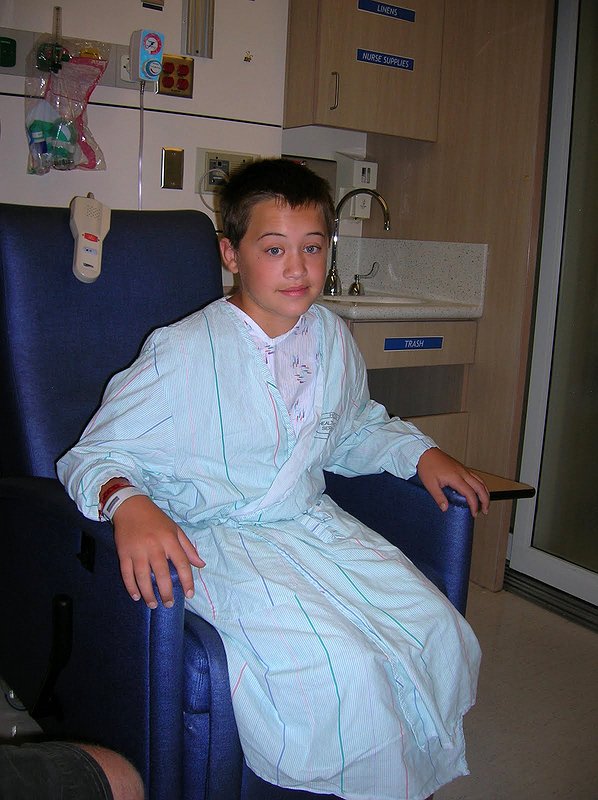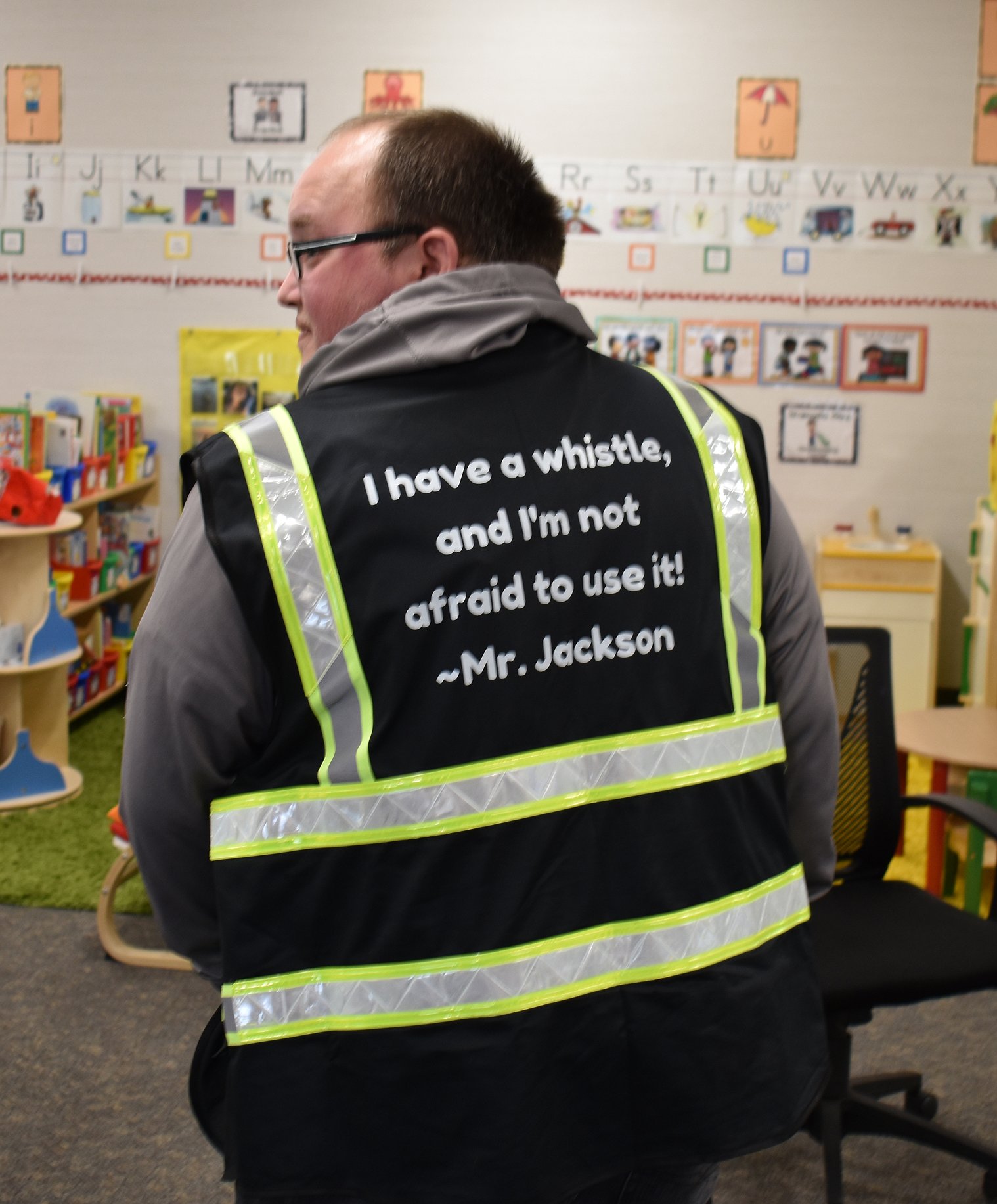A little kindness
ROYAL CITY — One of the scariest words in the English language is cancer. Brain cancer is doubly frightening and having it settle in during childhood is a triple whammy.
That’s what Jackson Noftle, a paraprofessional at Red Rock Elementary School, has been dealing with for 24 years.
“I was diagnosed when I was 4 1/2,” he said. “I went to chemo for six months … and the chemo at the time, they didn’t know it didn’t cross the blood-brain barrier. So the cancer was still there. It was morphing and hiding.”
Technically, nobody is really certain if Langerhans cell histiocytosis, the condition Jackson Noftle was diagnosed with, is actually a cancer or just a very rare disorder that looks like one, according to the National Cancer Institute. Not that it matters when your child has it. LCH attacked Jackson’s pituitary gland, the gland at the base of the brain that controls most of the other glands in the body. The blood-brain barrier is a semi-permeable membrane that surrounds blood vessels in the brain and regulates what gets into the brain. Since chemotherapy is essentially a matter of injecting harsh medication into the body, the blood-brain barrier was doing its job and keeping the foreign substance out, which Jackson and his family discovered when he started seventh grade.
“The first day of school I came home crying,” he said. “I was a bad news bear. It took like six months to finally figure (it) out.”
“What had happened —– and Jackson didn't know how to verbalize it — was people would write stuff on the board and he was supposed to write it down,” said his mother, Becky Noftle, who teaches special education preschool at Red Rock. “He'd be looking at it and could read it, and then he'd go to write it down and between seeing it and (writing it) he'd forget. He could only get down two letters at a time and they'd be moving on, and he just didn't know what was wrong with him. He thought he was going crazy.”
They began to notice other problems, Becky said, especially gross motor problems. Jackson had always been very athletic; he played quarterback for Grid Kids football and was a star shooter for AAU basketball. His dad did some internet research and learned that the chemotherapy that had been used when Jackson was little hadn’t been effective.
“So all that time the histiocytes had been multiplying and creating holes in his brain, lesions in his brain,” Becky said. “And it finally just got bad enough that he noticed all the symptoms.”
The Noftles took a trip to Texas Children’s Cancer Center in Houston, where a specialist diagnosed him with neurodegenerative central nervous system Langerhans cell histiocytosis.
“From that day on, he quit being upset about going to school,” Becky said. “Because he thought he was crazy, and then when there was a reason why he was struggling so much, he felt so much better.”
There were still challenges though.
“The worst part of it all? He said I can’t play football,” Jackson said. “I didn’t cry when he told me I had brain cancer, but I cried when he told me no more football.”
That opened the door to a long regimen of chemotherapy, Jackson said, mostly involving monthly trips to Seattle until just a few years ago, when he was able to begin having them at home.
After Jackson finished high school, he went on a church mission that was supposed to last a year, but nine months into it he got a call from the Royal School District. The special education teacher at the time wanted him to apply to be a paraprofessional, he said. He started out working at Royal High School, but Red Rock Principal Missy Stevenson had other plans for him.
“I was trying to recruit him secretly because we needed more support here,” Stevenson said. “I wanted Jackson because … I just think it's really important that kids see someone like Jackson, who is not the same as everybody else. He has an awesome work ethic, has a great sense of humor, and he comes to work every day and works hard.”
Jackson’s cognitive functions work fine, Becky said; his IQ tests out at about average. However the LCH has done damage to his central nervous system, which affects his motor skills and makes his speech slurred. He had a driver’s license for a couple of years, he said, but a bad car accident put an end to that. When he worked on his Eagle Scout project — the welcome sign that greets travelers coming off of State Route 26 as one enters Royal City — he had to talk to people on the phone and some of them thought he was pranking them, making fun of the disabled.
“It's really affected my speech, my balance, my hand-eye coordination, my everything,” he said. “I used to be the best athlete, and now I got beaten today by a second grader in tetherball.”
Challenges like that allow Jackson to step forward as an opportunity for learning.
“We've been working on kindness across the building,” Stevenson said, “because I think we've missed some of that along the way: how kids play together and work together, and there could be kids that are different than them. And I think Jackson brings that to the school. And kids really respond to him. Like, I'll be out there (on the playground) and they're not necessarily listening to me, but they'll listen to him.”
Jackson — the kids call him “Mr. Jackson” — covers recess duty and works in the developmental preschool classroom. He also greets kids coming off the buses every morning, which is an important part of their day, Becky said.
“One time last year … I dropped him off at the high school and he had had a doctor's appointment the day before and missed school,” she said. “A mom got out of the car with her high-schooler and said ‘Where were you yesterday? I was worried about you.’ And he said, ‘I had a doctor’s appointment.’ And she said, ‘Jackson, sometimes my daughter tells me you're the only one to smile and say hi to her.’ Jackson and I never go to town and walk through Walmart, where there’s not 50 kids going, ‘Hey, Jackson.’”
Joel Martin may be reached via email at jmartin@columbiabasinherald.com.







